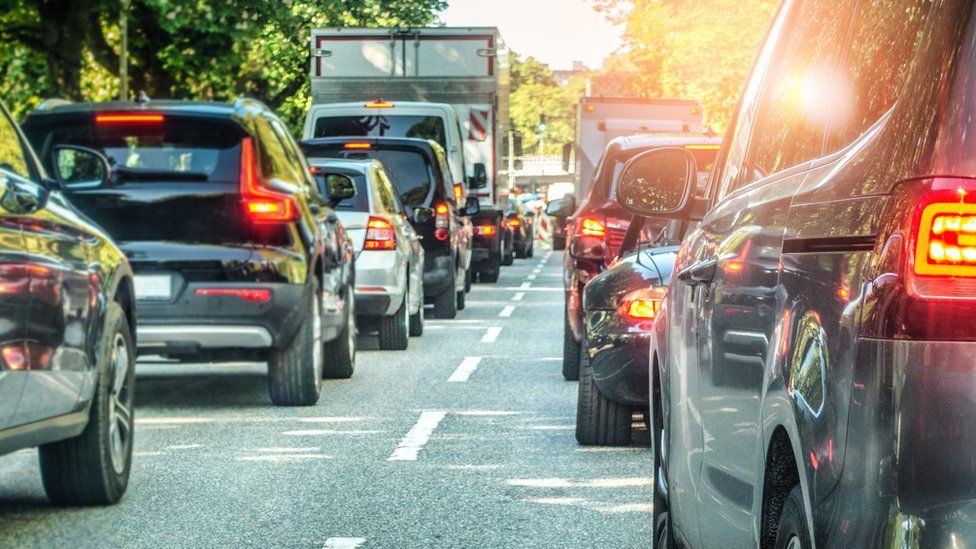A group of German residents are suing their government over “dangerously” high air pollution levels. They claim their right to breathe clean and healthy air is being violated, and that the government is failing to protect their health.
Like many countries, Germany’s air pollution levels often far exceed World Health Organization limits. Globally, air pollution is associated with seven million premature deaths a year.
It is the first time individuals in Germany have taken such action citing human rights legislation.
The case comes after one of the EU’s top lawyers, the advocate general to the European Court of Justice, said in May that citizens could take such action to try to win compensation.
The group of seven claimants, which includes parents acting on behalf of children, say their health is at risk and politicians are failing to protect them. A number of them have asthma.
They live in Berlin, Munich, Frankfurt and Dusseldorf – four of German’s seven biggest cities- and claim they are breathing air with concentrations of pollution four to five times higher than the WHO’s acceptable limits.
Volker Becker-Battaglia lives in Munich, on one of Germany’s most polluted streets. “Air pollution is a problem you can’t see. It’s not in people’s minds, but it’s a killer,” he told BBC News.
“About 150,000 people drive their cars in front of our house every day, it’s horrible. We flee the city whenever we can,” he explains.
Constanze, from Düsseldorf, who prefers to use her first name only to protect her privacy, said she is taking part in the case for her two children.
“They deserve to grow up healthy. Living in a city should not condemn them to getting sick because of air pollution, and carrying its impacts with them for the rest of their lives.”

Germany’s air pollution levels are in line with the country’s own law, but the claimants say the law must change to reflect growing scientific consensus.
The WHO slashed the recommended limits in 2021, as more evidence became available about the dangers of toxic air.
Germany’s Environment Agency said that the federal states are responsible for assessing air quality, and take action if limits are breached.
“The WHO guide values are recommendations that do not have the legally binding character of the limit values of the EU Air Quality Directive,” a spokesperson said.
Research published this month suggests how breathing in car fumes can lead to lung cancer by awakening dormant cells. About one in 10 cases of the disease is attributed to air pollution.
“Protection from air pollution is a human rights issue. Many people are starting to understand how much their life and their children’s lives can improve if governments start implementing better controls,” Irmina Kotiuk, human rights lawyer with Client Earth, said.
Germany could act as a leader in improving air pollution, prompting other countries to do the same, she suggests.
The claimants are also asking that the German government educates the public about dangerous levels of air pollution based on WHO advice.
The case is filed in Germany’s constitutional court that protects citizens’ fundamental human rights. The claimants are not suing for financial compensation, but for the government to take action.
A ruling in their favour would apply nationwide.
It comes after a series of cases and rulings in Europe on air pollution.
In 2020, nine-year-old Ella Adoo-Kissi-Debrah became the first person in the UK to have air pollution listed as a cause of death. She lived near a busy road in London and died of an asthma attack.
France’s government was ordered to pay a €10m (£8.9m) fine in 2021 over failures to improve air quality.



No comments:
Post a Comment
Note: only a member of this blog may post a comment.